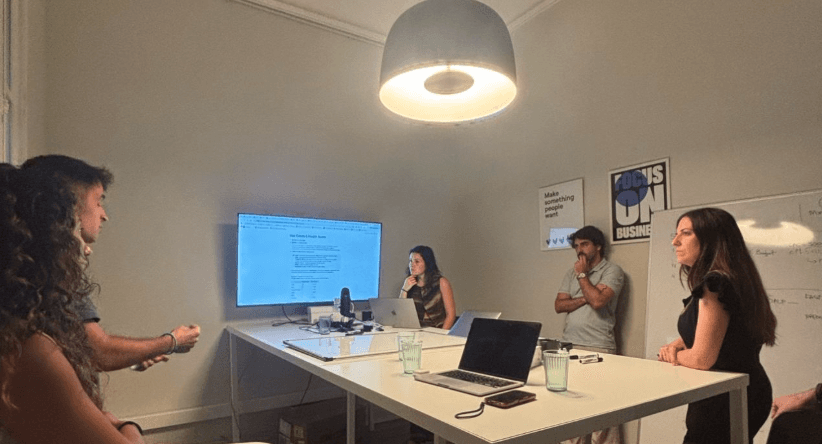How startups ship value quickly
Management

Startups win by shipping fast. But what does “fast” look like in practice?
This summer we’ve been asking ourselves that question, especially after our PM left, making us reconsider how we were organized and how to operate our Product team to ship great value fast.
To open our minds and learn from the best, we met recently with two startups that are killing it, shipping great product super fast.
How Dealcar and Webel do it
We talked with founders from two startups here in Barcelona, Dealcar and Webel. Here’s what stood out in both of them:
Obsession with delivery. It’s part of their culture and their values. They are obsessed with delivering value to the customer, as quickly as possible. They speak about it with passion, and it permeates all conversations about vision, planning, and how to implement features.
Passionate Product Owner founder. In both, one of the co-founders was acting as Product Owner, driving the mission, setting the standards, and being very demanding with what the product needed to achieve. This high energy and high expectations reminded me completely of Ben at Splash, and what a success that was during Splash’s startup days.
Analytical CTO that brings down ideas to technical plans. Pairing with the visionary Product Owner, both startups had intelligent thoughtful technical leaders. The CTOs turned ideas into viable technical solutions, again and again, with an emphasis on being iterative and learning quickly from users.
Streamlined UI implementation. SaaS typical user interfaces should be built as fast as possible, with minimal overhead, using existing open source UI kits like shadcn, even leveraging v0 or similar.
How very differently they also do it
While they have those things in common, in other aspects, they are totally opposite.
Particularly, I was struck by how the engineers handled the work:
Webel’s team organizes in specialized engineers that receive detailed specs from the CTO, and they need to execute them and solve the technical challenges found along the way. Engineers can be true specialists of their discipline (frontend, backend, Android, iOS), and focus on being excellent at delivery and quality.
Dealcar gave engineers the autonomy and ownership to implement solutions, starting from the problem to solve and rough sketches. In this model, engineers have to wear many hats and have much more context about the customer needs. They might not have the chance to specialize or work in the discipline they like most, but they have a more complete ownership over the success of the project.
The better approach
A work framework is right if it enables you to achieve your objectives with the context you have: company size, culture, client expectations, market speed, etc. That’s why there isn’t a “better” approach here. It’s about what works for you.
These two organizations have found a framework that enables them to ship value to customers remarkably fast. And it fills me with admiration, because it isn’t easy.
We’re still figuring out what works best for us at haddock, but being around these teams reminded me how much can be achieved with culture, clarity, high expectations, and an open mind.